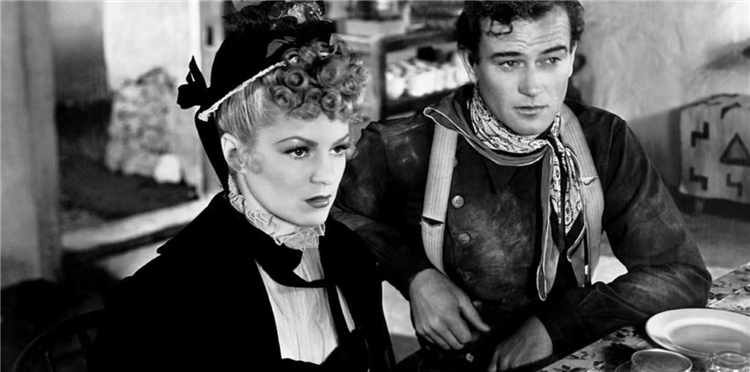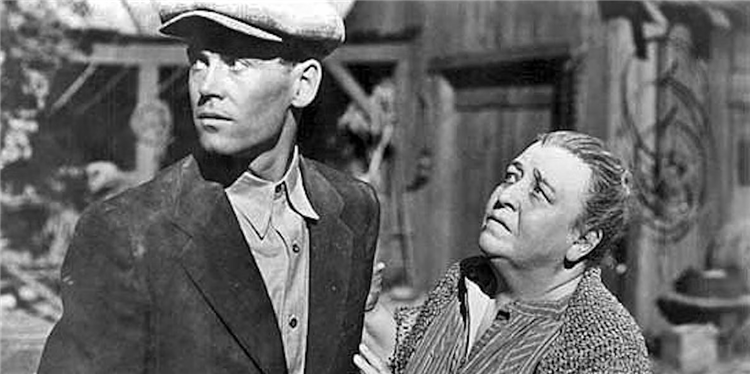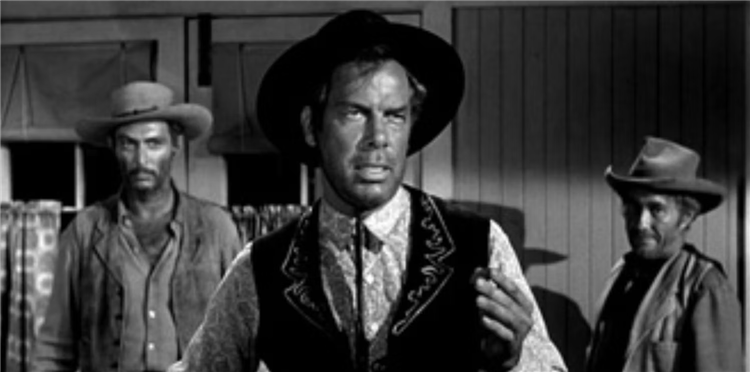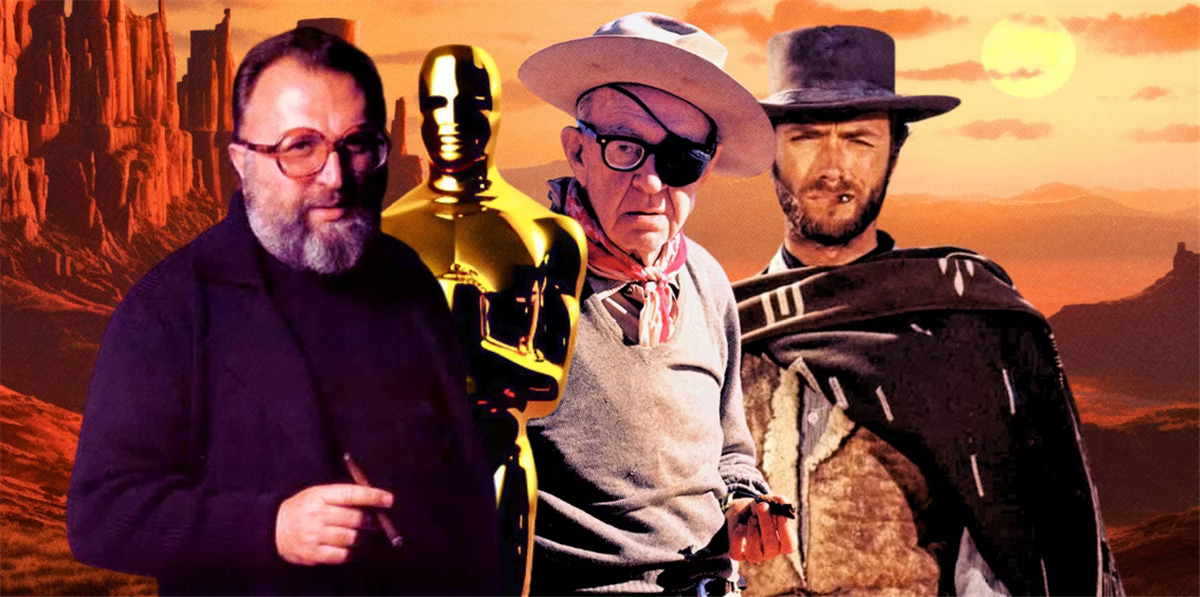Ironically, the most awarded director of all time probably deserved more Oscars.
- John Ford, the most decorated director of all time, never won an Oscar for any of his iconic Western films despite being the most significant Western film director of all time.
- Ford’s visual and thematic style of storytelling left a lasting impact on the Western genre, with his sparse landscapes and iconic shots shaping the genre’s future developments.
- Although Ford won four Best Director Oscars for films in different genres, his experience with directing many Westerns may have negatively affected his chances of winning an Oscar for the genre due to expected hallmarks and plot points. Furthermore, the Academy’s historic bias against Westerns may have also played a role in his lack of recognition in this genre.
There is a great obsession people have with trying to quantify excellence. Any debate over the greatest athlete in any sport always involves the number of championships or gold medals they won, how many years they held the title, or how long their winning streak lasted. Obviously, the trophies are not everything, but they provide an important benchmark when trying to stack the most accomplished people in any category against each other. When it comes to movies, of course, the gold standard is the Academy Awards. Plenty of the directors who could lay a claim to being the greatest of all time have been amply rewarded at the Oscars: Steven Spielberg, David Lean, Martin Scorsese, William Wyler, Frank Capra, and dozens of others ascended to Oscar glory over the years, and even some of the greatest who never won Best Director were at least nominated multiple times as a testament to their consistently excellent work, like Stanley Kubrick and Alfred Hitchcock. But when it comes to the Academy Awards, there is an undisputed “greatest director of all time” — at least if the only thing you count is the amount of Oscar hardware in his closet — and th at is John Ford
Ford goes down in cinematic history most notably as being the quintessential director of the Western genre for an entire generation. Whether it be with Stagecoach in the 1930s, My Darling Clementine and She Wore a Yellow Ribbon in the 1940s, The Searchers and The Horse Soldiers in the 1950s, or The Man Who Shot Liberty Valance in 1962, Ford’s impact on the genre produced some of the most iconic Westerns ever made. It is one of the most curious ironies of Oscar history, consequently, that the most decorated director of all time, who is also the most significant Western film director of all time, never won an Oscar for a single one of his Westerns.
How John Ford Impacted the Western Style

It comes along with the territory of being the man who created Western classics like Stagecoach, The Searchers, and The Man Who Shot Liberty Valance, but the visual and thematic style of Ford’s storytelling left an indelible mark on the Western and its future developments. Ford was one of the earliest pioneers of the grand but stark and sparse sweeping landscapes that grace the cinematography of every Western, and his straightforward simplicity of style perfectly suited the moral landscape of the Western genre as a whole. This sparse simplicity also gave rise to some of the most iconic shots in cinema, like the door frame opening and closing on the solitary figure of Ethan Edwards as the framing shot at the beginning and end of The Searchers, and has impacted filmmakers ever since.
John Ford’s Directing Abilities Weren’t Confined to Westerns

The first part of any answer to the enigma of Ford’s unawarded Westerns is that, for all his well-deserved accolades as the great Western director, his interests and abilities ranged far beyond one genre, and he proved to be extremely adept at telling a number of different types of stories in diverse genres. In fact, while he won four Best Director Oscars and never for a Western, no two films he did win for were in the same genre.
His first directorial win, for example, was for The Informer in 1935, a crime drama set in Dublin. His second was for The Grapes of Wrath (1940), an adaptation of the John Steinbeck novel. His third was for How Green Was My Valley (1941), a family drama set in a Welsh mining town, perhaps most famous these days for beating Citizen Kane
Why Didn’t Ford Ever Win an Oscar for a Western?

Despite his many accolades, Ford’s inability to win for his most iconic genre is still puzzling. If his skills as a director were so frequently recognized, why was he never awarded for the genre in which he was most skilled and had the most experience, and was most passionate about?
Ironically, his experience with directing Westerns is likely part of the reason why he never won for directing one. Because he directed so many of them, a “John Ford Western” had expected hallmarks and plot points, and consequently did not stand out as much as they should have for the excellent filmmaking they displayed — precisely because Ford made a great many of them. It is telling, in this regard, that the only time Ford was even nominated for Best Director for a Western was for Stagecoach in 1939, which was one of his earliest Westerns and before he became irrevocably associated with them. As he made so many Westerns, it was likely the sheer volume of his work that ironically negatively affected his chances with a Western; when his baseline was a specific genre of film, his projects in different genres were the ones that were more commonly noticed, lauded, and ultimately awarded.
But even that angle does not tell the whole story. Almost certainly part of the reason for the empty shelf for Western Oscars has to do with a strange bias against Westerns generally at the Oscars. From the very first Academy Awards ceremony until the year 1990, there was only one Western that actually won Best Picture: 1931’s Cimarron. Strangely enough, during the heyday of Westerns and their peak popularity, in the John Wayne and early Clint Eastwood era from the 40s through the 70s, not a single Western won Best Picture.
The Academy’s distaste for Westerns at the time seems strange, but it may have been due precisely to the popularity of the genre at the time. There is often a perceived disconnect between what is artistic and what is popular with crowds — after all, superhero films have dominated the box office for the last 15 years, but none of them have ever won Best Picture either. Perhaps, as well, due to the plain aesthetic and thematic style of Westerns, the Oscar voters have mistaken the stark style for a “simple” story. In either case, it has been a serious oversight in Oscar history. To take one example, the film that takes the top prize in the AFI list of the top ten Westerns, Ford’s The Searchers, despite its excellent storytelling and filmmaking (and arguably John Wayne’s most powerful and nuanced performance of his career), was not nominated for a single Oscar.
It’s not as if Ford is hurting for a lack of recognition, but it is a curious quirk of cinematic history that the most famous and awarded director of Westerns in history never won a single award in his most beloved genre. Regardless of the oversight, the accumulation of Oscars is ultimately secondary: Ford’s work itself remains, and the judgment of his work with time has been a testament to the staying power of his Westerns and the permanent mark that he left on the genre.
